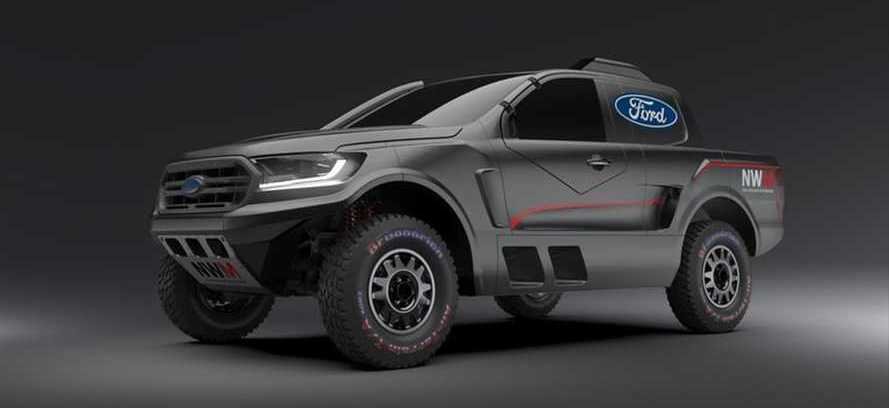2020 Ford Ranger Raptor Gets Twin-Turbo V6 Engine, Will Race In South Africa

Although it resembles the Ranger Raptor we've tested last year at Red Bull Romaniacs, the carbon-clad truck is actually purpose-built for racing with the 5.0-liter Coyote V8 instead of the 2.0-liter EcoBlue bi-turbo diesel.
For 2020, Ford Castrol has swapped the eight-cylinder engine for the 3.5-liter EcoBoost V6 of the F-150 and F-150 Raptor. Another change is the rear suspension, now IRS as opposed to a solid axle. Capable of traveling up to 11 inches, the independent suspension system is joined by six-piston Brembo calipers up front and water-cooled brakes at the rear.
No fewer than three Ranger Raptor EcoBoost race trucks will be manufactured and fielded by mid-2020, and all three will compete in the top class of the South African Cross Country Series. "The introduction of turbocharged gasoline engines by the FIA represents an exciting new era for the sport, and for the Ford Castrol Team and Neil Woolridge Motorsport to be at the forefront of this development is a great accolade," said team principal Neil Woolridge.
As a side note, NWM runs the Ford Castrol Team. The 3.5-liter EcoBoost V6-engined Ranger Raptor isn't expected to finish on the podium right away. 2020 is a development and fine-tuning year for Ford Castrol and NWM, but on the upside, the target for 2021 is the FIA-class title.
Turning our attention back to the pickup, differences over the road-going model further include the 480-liter fuel cell from Aerotec Laboratories and the SADEV transmission. Lighter differentials, a specialized steering rack for off-road racing, and BF Goodrich KDR2+ are also worthy of note.
"An entirely new chassis design" complements the BOS dampers on all four corners, and even the cockpit is larger than the V8-engined race trucks from previous years. Once NWM finishes developing the newcomer, the V6-engined model will be available for privateer teams as well.
The 2020 SACCS calendar kicks off on February 28th with the Mpumalanga 400, and the final round is Parys 400 on October 23rd and 24th.

Nouvelles connexes


